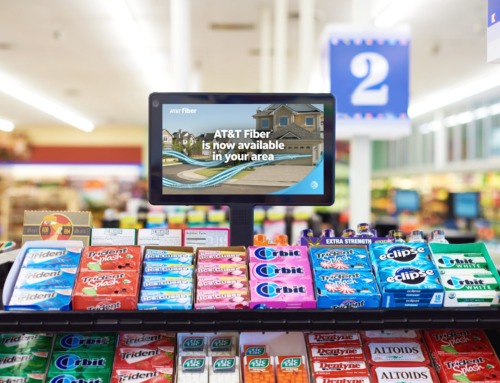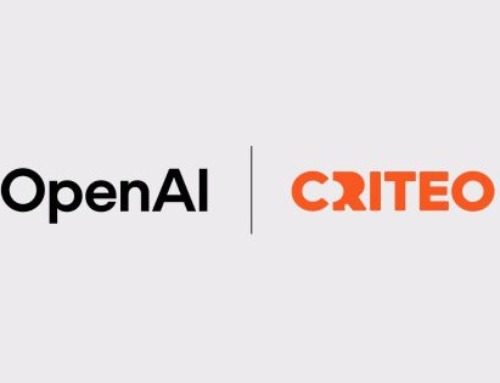Lab Weekly — 10/03/2025 Social media enters AI Deepfake era; Plus, the latest news about Amazon and Google’s smart home events, and more must-know news and stats
Want this newsletter in your inbox every week? Sign up for our mailing list here

Here are some implications and opportunities for brands and marketers to consider.

From the expanding definition of value-driven shoppers, to the rise of channel-less retail experiences, here are some of the latest retail trends that brands should know
Meta Connect 2025 Recap: Zuckerberg Goes All-In on AI Glasses
The new Meta Display glasses look impressive, but can Meta’s AI keep up with its ambition?
What Marketers Need to Know about the iPhone 17 Event
Apple pitches creator-friendly camera features, new wearable health features, and live translation

From upgraded Kindle Scribes to a slew of new Echo devices, Amazon had a lot to share. Whether it’s the $100 Echo Dot Max or $220 Echo Studio smart speakers, the main takeaway is that all the latest Echo speakers and Fire TV devices will come with Alexa+, the LLM-supercharged Alexa. In addition, Amazon also touted an “Omnisense,” which was described as a new “custom sensor fusion platform which is designed specifically for AI.”
Not to be outdone, Google also hosted a similarly smart home-oriented hardware event this week, unveiling a new line of Google Home speakers with a flattened sphere design and new Nest security cameras. Same as Amazon, Google is rolling out Gemini for Home, which adds intelligence to cameras and features a redesigned Home app.
Now that both leaders in the smart home hardware market have unleashed their updated AI assistant into the wild, it is time to see whether they could stop some of the ecosystem decay that the smart home market has been suffering from and revive the market with potential new use cases. Amazon users will need to buy new devices to access Alexa 2.0, whereas Google Home users might just need to wait a while for Gemini to come home.
Related: Amazon launches new Fire TVs and a $40 Fire TV Stick 4K Select with a new OS called Vega and built in Alexa+ [CNET]; Gemini is coming to every Google smart home device from the last decade [Tech Radar]
Meta plans to sell targeted ads based on data in your AI chats [TechCrunch]
In a move that many have long seen coming, Meta says it will use users’ AI chatbot conversations to help personalize ads and content, starting on December 16. However, the initial rollout will not cover the UK, South Korea, or the EU, presumably due to local privacy laws preventing this type of data collection.
It’s inevitable that AI chatbots would become another channel for user data collection, and all major chatbot players are sitting on a growing mountain of first-party data, which might even include some deeply personal information. OpenAI CEO Sam Altman recently warned users not to share sensitive information with ChatGPT, as these human-AI conversations lack legal confidentiality protections. Deploying data collected from AI chats for ad targeting, therefore, would require Meta to strike some tricky balances between being magically helpful and creepily intrusive.
Related: Mark Zuckerberg takes on advertising industry with Meta’s AI arsenal [Yahoo News]; Google Photos expands conversational editing to more Android phones [The Verge]
OpenAI Debuts Instant Checkout and the Agentic Commerce Protocol [OpenAI Blog]
OpenAI is diving into agentic commerce with a new Instant Checkout feature, which enables ChatGPT users to make purchases directly from vendors, starting with Etsy. The company also said more than one million Shopify merchants, including Skims and Glossier, are coming soon.
It’s worth noting that, while merchants pay a small fee on completed purchases, the checkout service is free for users, doesn’t affect their prices, and doesn’t influence ChatGPT’s product results. Instant Checkout items are not preferred in product results. This is a smart move for OpenAi to maintain trust with its users. However, this move into ecommerce is certainly not entirely altruistic for OpenAI. When ranking multiple merchants that sell the same product, ChatGPT would prioritize the ones that have opted into Instant Checkout so as to optimize the user experience.
Related: Etsy pops 16% as OpenAI announces ChatGPT Instant Checkout for the shopping site [CNBC]; Walmart plans to use sensors on pallets to automate the tracking of the location and condition of groceries shipping to its stores [Financial Times]
Situational Awareness: OpenAI runs its first extended brand campaign [Ad Age]
After running a Super Bowl commercial last February, OpenAI is now launching its first extended brand campaign with a series of ad spots depicting slice-of-life moments where people turn to ChatGPT for help. The funny thing, however, is that some of the ads represented the chat as text that scrolled over the screen quickly, barely making enough time for people to see the supposedly helpful answers the chatbot provides.
Google’s AI Mode image search is getting more conversational [The Verge]
Following OpenAI’s push into agentic commerce with Instant Checkout, Google is updating AI Mode to make it easier for users to search through images using vague descriptions and references, thus providing a more conversational way to shop for products online. It should be especially useful for people looking for vintage items or “dupes.”
AI startup Friend bets on foes with $1 Million NYC subway campaign [AdWeek]
While this infamous campaign has turned out to be a trolling stunt (in which case, mission accomplished!), it’s best to remember that AI chatbots are programmed to be endlessly supportive and friendly, even when what you usually need is a neutral perspective. Distracting yourself with an AI yes-man won’t help with your loneliness.
- Appfigures data shows that OpenAI’s Sora app saw 56,000 iOS installs on its first day, on par with Grok but ahead of Claude and Copilot; ChatGPT and Gemini each had about 80,000 installs on day one, TechCrunch reports.
- Uber’s grocery and retail delivery business is growing faster than expected. The company expects non-restaurant deliveries to hit an annual run rate of $12.5 billion in gross bookings by the end of 2025, up 25% from the $10 billion rate it shared in May, Bloomberg reports.
- Anthropic boasts that their latest Claude model, Sonnet 4.5, is the best coding model in the world. Anthropic shares that Claude Sonnet 4.5 spent 30 hours running autonomously, writing 11,000 lines of code to build a chat app akin to Slack or Teams.
If you find our insights valuable and would like to have a deeper conversation on technology and media innovations, or need to sound smarter in a client meeting or a pitch, please feel free to reach out to Ryan Miller, our Director of Partnerships, at ryan.miller@ipglab.com.
If you liked this edition of Lab Weekly by IPG Media Lab, why not share it?
Lab Weekly — 10/03/2025 was originally published in IPG Media Lab on Medium, where people are continuing the conversation by highlighting and responding to this story.








